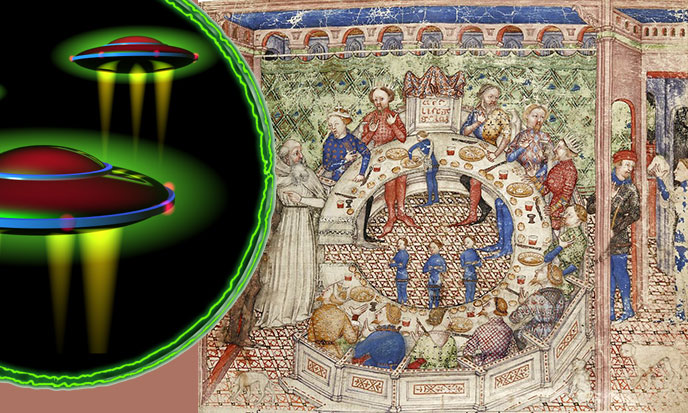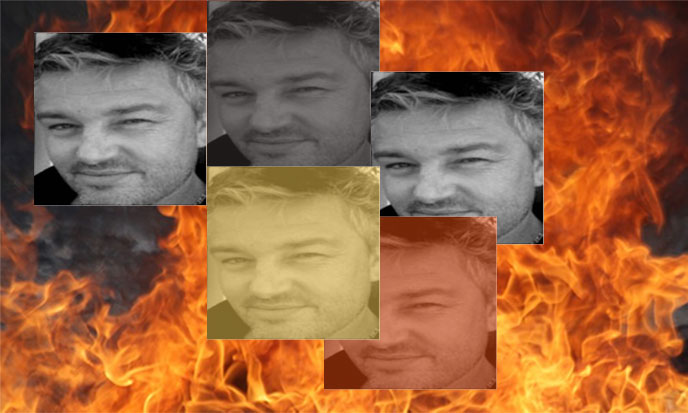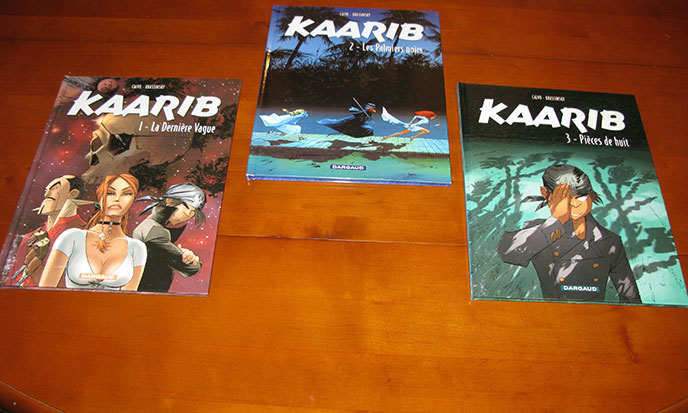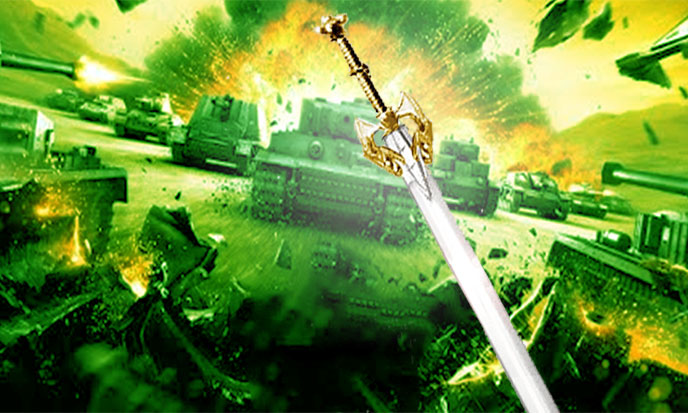
In Western mythologies, ancient weapons are described as swords, spears, axes, helmets, crowns or shields, which is very reassuring, in the end, and prevents the lazy reader from asking too many questions. Those who, like myself, claim that our distant past was technological and that these ancient weapons were quite modern, skeptics can easily call them fabricators on account of the lack of evidences.
This question of evidence is very irritating. Everything would be so much easier if we found pre-diluvian machine guns, Neolithic tanks, ancient jet fighters! If we do not find one, we console ourselves by saying that the absence of proof is not proof of absence. If evidences are not found, I see two reasons: most of these weapons were too precious to be abandoned on any wild planet. And above all, they are dangerous. To leave them in the hands of primitive humans, children, would be irresponsible. Those who designed and built them – the former gods, the ancient astronauts, or whatever name they are given – have taken these precious and dangerous weapons with them. Or have they entrusted them, in valuable legacy, to some initiates who were jealously watching over them and their prodigious power.
Same for the Pharaohs crowns: Graham Hancock pointed out the fact that none of them has ever been found. Yet, on the frescoes and Egyptian sculptures, the incredible crowns of Osiris, Isis or Hathor are everywhere. Aligent, enigmatic, highly technological. The few weapons, machines or crowns that have remained is by decision of the ancient astronauts. Carefully preserved in hiding places -in the holy of holies of certain temples, in tunnels or in subterranean rooms like those of Giza in Egypt– they are still there.
![Graham Hancock, By [Cpt.Muji] (Own work) [CC BY 3.0 (http://creativecommons.org/licenses/by/3.0)], via Wikimedia Commons , https://commons.wikimedia.org/wiki/File:Graham-Hancock.jpg -- -- -- modified by / modifié par Stef Kervor pour Eden Saga graham-hancock-sk-eden-saga-688po](https://eden-saga.com/wp-content/uploads/Graham-Hancock-sk-eden-saga-688po.jpg)
It is therefore not excluded that one or another could be find some day. It is also possible that some initiates know these hidings, have access to them, and continue to conceal major archaeological evidence in the name of some ideology. In fact, even without objects, weapons or others, evidences do exist. We must look for them in the language, which has retained the memory of everything. Language, my friends, is a secret code developed by the former gods. A rebus to be deciphered, a message in a bottle entrusted to the ocean of time, which endlessly beats the shore, and never goes back to the source.
It’s your job, my friends. It’s up to you to do that. Back to the source, there is no solution but becoming the one you are. To understand where you come from, you have to roll back and forth. With the universal language, with the language of the gods before, you will see how easy it is.
But there is something else. When I evoke the former gods -the ancient astronauts- I find myself in a very distant period, before the common era, no doubt. But the presence of magical weapons is not limited to these distant times. In the Middle Ages, especially, and up to the French Renaissance, or afterwards, we still find traces of these amazing weapons, they called magical.
Art H Ur
Let’s take the example of King Arthur’s magical sword. Certainly, this character is more legendary than historical. And his magical sword is probably just a straightforward sketch of the medieval imagination.

I was not far from aligning myself with the dominant thought, which is wrong, when my companion Alain Aillet pulled me out of my dogmatic sleep, which is right.
Alain crossed my path a few years ago. Independent researcher, he had just discovered Eden Saga. His enthusiasm did me great good. Very quickly, he was passionate about certain subjects, which he mastered at best. Now that we are friends, he does me the honor to write in these pages, which I thank him for. This time he wanted to share the joy of discovery.
The language of goslings is more than a hobby for him. Or, better speaking, the Langue d’Or, the Golden Tongue, ie that universal language which was taught to our distant ancestors by those whom I use to call the former gods. Alain Aillet is prancing on the Golden Tongue. His advances are dazzling. He has identified several phonemes already, including UR / OUR / OR, which means the origin, ie the distant homeland of the ancient astronauts, URSUS MAJOR, the Great Bear.
With this phoneme in mind, he was reviewing the film Excalibur, masterpiece of John Boorman. Suddenly an image imposes on his mind: there is UR in Excalibur! At once the researcher was at work.
“Ex, from the Latin” which comes from “, and UR, you understood me, which gives us: ex ur = that comes from Ur, but there are two mysterious syllables in the middle of the word: Does not give anything, then, I do not know why, I think of Arabic qalib. And what do I find?
Caliber, Arabic qālib of the Greek kalopous, form of shoe. Instrument materializing a length and serving as a comparison for the control of mechanical manufacture. (source)dico Larousse
We have therefore exqalibur = mechanical manufacture (modern weapon) realized according to the plans (qalib) of Hyperborée! Made in Godland, somehow … “(source)Alain Aillet, correspondence with Xavier Séguin

Kaarib
I love this guy. I crave his delusions, which resemble mine so strongly. But that’s more than a delirium, it’s diamond, it’s gold, it’s ur.
Stimulated by his discoveries, I found another track for calib. As many of my tracks, it comes from comic books. I have made a career in comics making, and I have kept a particular tenderness for this art of the tale and the imaginary. The authors must be curious, encyclopedists and generous. And there is the magic of the image and the power of the trait.
In Creole is found the word kaarib. It is used in the name Carribean. A characteristic of the Creole accent consits in the elision of the R, or rather its replacement by a rolled R which is very easily confused with a L. Kaarib is pronounced kalib and it means, listen, North Star !!
One can not be more clear: the Etoile du Nord, it is evidently Hyperborée, whose name means “above the north pole”. I shudder with joy. In this version, Excalibur becomes EX KALIB UR which translates: COME FROM UR, THE NORTHERN STAR.
D’Ur An Dall
Ex Qalib Ur, the magic sword that comes from Ur !! You can also add Durandal, the magic sword of knight Roland, nephew of Charlemagne. Legend has it that, on the point of falling into the hands of the Moors, Roland tried to break Durandal on a rock, but it was the rock that shattered.
![Monument de Roland à Roncevaux - By Jaume at French Wikipedia [Public domain], via Wikimedia Commons - https://commons.wikimedia.org/wiki/File:Roncevaux_Roland.jpg roncevaux-roland-688po](https://eden-saga.com/wp-content/uploads/Roncevaux-Roland-688po.jpg)
The distinguished linguists claim that the word Durandal comes from Dragvendill: sword / sword, Norwegian name, ancient sword of the family of Rafnista, which would originally be the word Durendal: “blind force” in Welsh, which gave its name to Durandal.
I do not mind, but if I use the Langue des Oisons here, I find something else. Hard in stone, it is what it is, since it bursts the rock. D’Ur End All, in French, with English, French and German, translates as “it comes from Ur, the end / origin of everything”.
The archaeo-linguistic discovery begins like a crazy game, and in the end, the game invades all of your life.
Kidding aside, I hallucinate. The high medieval age of the Knights of the Round Table seems to me completely crushed by the astronauts gods. It looks as if these super-fellows made in Ur had never stopped watching over their work.
This is quite natural. Now we are going to terraform Mars, how can we imagine that, after all the work of land and sea management, the development of multiple animal and plant species, the development and education of an intelligent species, we suddenly disinterest this wonderful planet? After millions, even billions of years of constant care?
So here’s my belief. Carefully listen to me please. The ancient astronauts are one of the extraterrestrial species that constantly revolve around us. And they come closer, I tell you. They come so much closer – they are already among us.

Faut-il pleurer ? Faut-il en rire ? Font-ils envie ou bien pitié ?
Je n’ai pas le coeur à le dire. On ne voit pas le temps passer.
(source)Jean Ferrat
Should we cry? Should we laugh? Do we envy or pity them?
I don’t feel like saying. We don’t see time passing.
(source)Jean Ferrat, traduction XS


